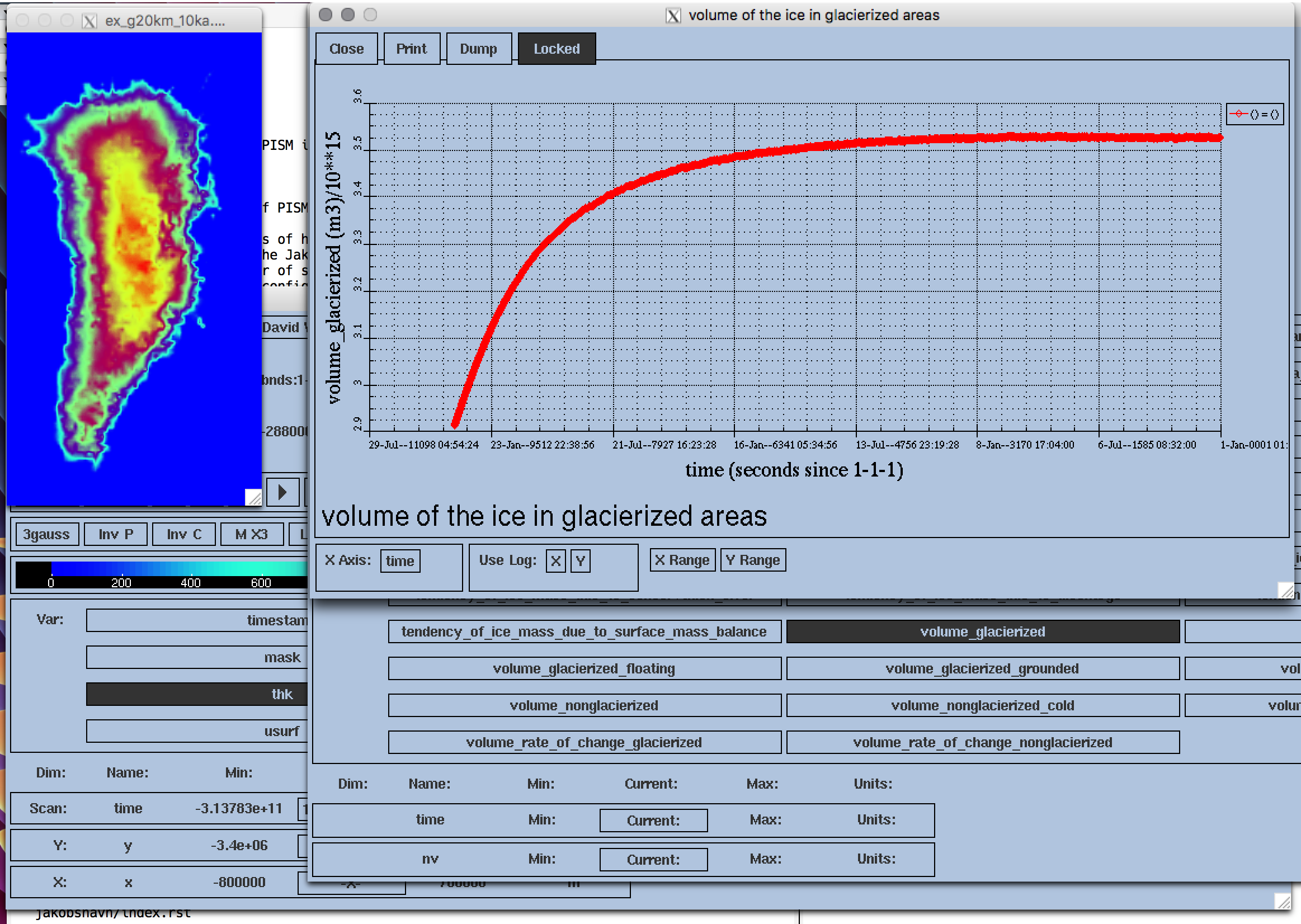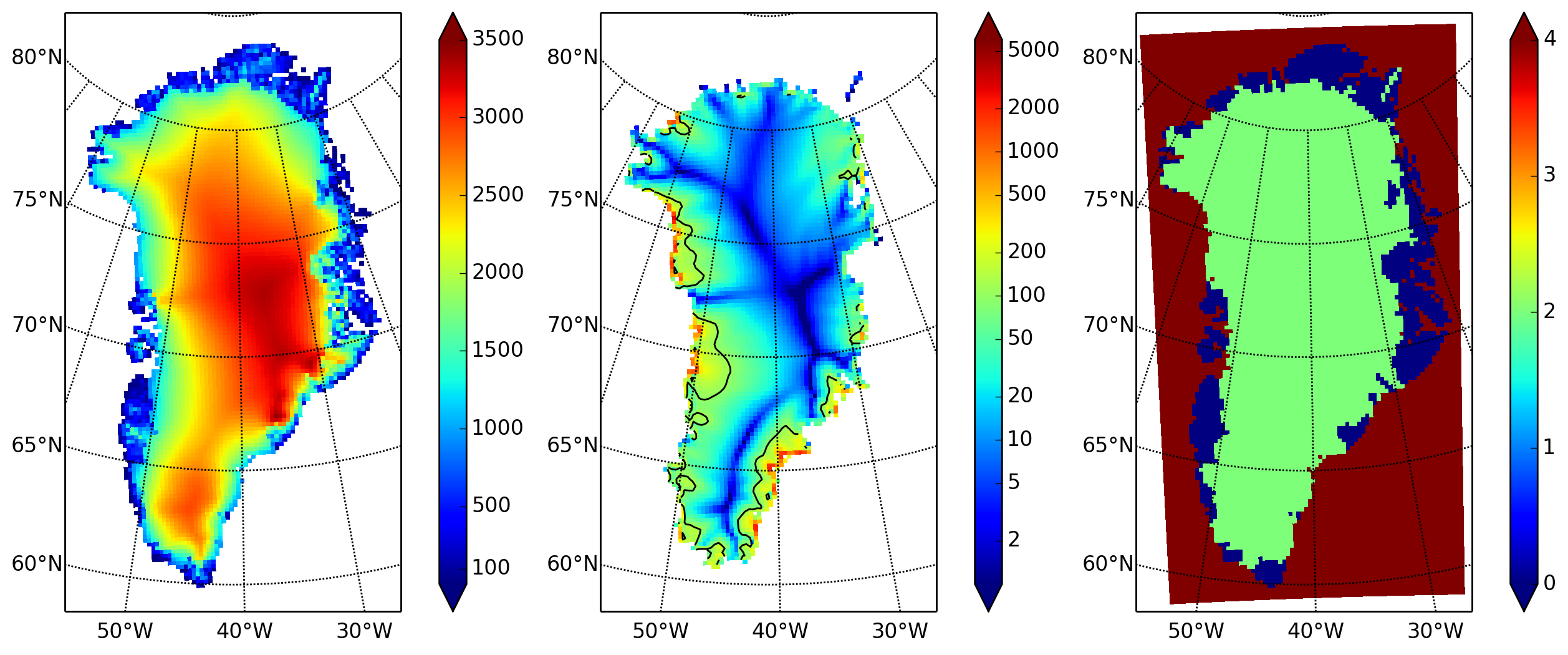Watching the first run¶
As soon as the run starts it creates time-dependent NetCDF files ts_g20km_10ka.nc and
ex_g20km_10ka.nc. The latter file, which has spatially-dependent fields at each time,
is created after the first 100 model years, a few wall clock seconds in this case. The
command -extra_file ex_g20km_10ka.nc -extra_times -10000:100:0 adds a
spatially-dependent “frame” at model times -9900, -9800, …, 0.
To look at the spatial-fields output graphically, do:
ncview ex_g20km_10ka.nc
We see that ex_g20km_10ka.nc contains growing “movies” of the fields chosen by the
-extra_vars option. A frame of the ice thickness field thk is shown in
Fig. 2 (left).
The time-series file ts_g20km_10ka.nc is also growing. It contains spatially-averaged
“scalar” diagnostics like the total ice volume or the ice-sheet-wide maximum velocity
(variable ice_volume_glacierized and max_hor_vel, respectively). It can be viewed by
running
ncview ts_g20km_10ka.nc
The growing time series for ice_volume_glacierized is shown in Fig. 2
(right). Recall that our intention was to generate a minimal model of the Greenland ice
sheet in approximate steady-state with a steady (constant-in-time) climate. The measurable
steadiness of the ice_volume_glacierized time series is a possible standard for steady
state (see [12], for exampe).

Fig. 2 Two views produced by ncview during a PISM model run.¶
- Left:
thk, the ice sheet thickness, a space-dependent field, from fileex_g20km_10ka.nc.- Right:
ice_volume_glacierized, the total ice sheet volume time-series, from filets_g20km_10ka.nc.
At the end of the run the output file g20km_10ka.nc is generated.
Fig. 3 shows some fields from this file. In the next subsections we
consider their “quality” as model results. To see a report on computational performance,
we do:
ncdump -h g20km_10ka.nc | grep -E "run_stats:.+hour"
which prints
run_stats:model_years_per_processor_hour = 10427.5040781299 ;
run_stats:processor_hours = 0.95836633026 ;
run_stats:wall_clock_hours = 0.1197957912825 ;

Fig. 3 Fields from output file g20km_10ka.nc.¶
- Left:
usurf, the ice sheet surface elevation in meters.- Middle:
velsurf_mag, the surface speed in meters/year, including the 100 m/year contour (solid black).- Right:
mask, with 0 = ice-free land, 2 = grounded ice, 4 = ice-free ocean.
| Previous | Up | Next |
